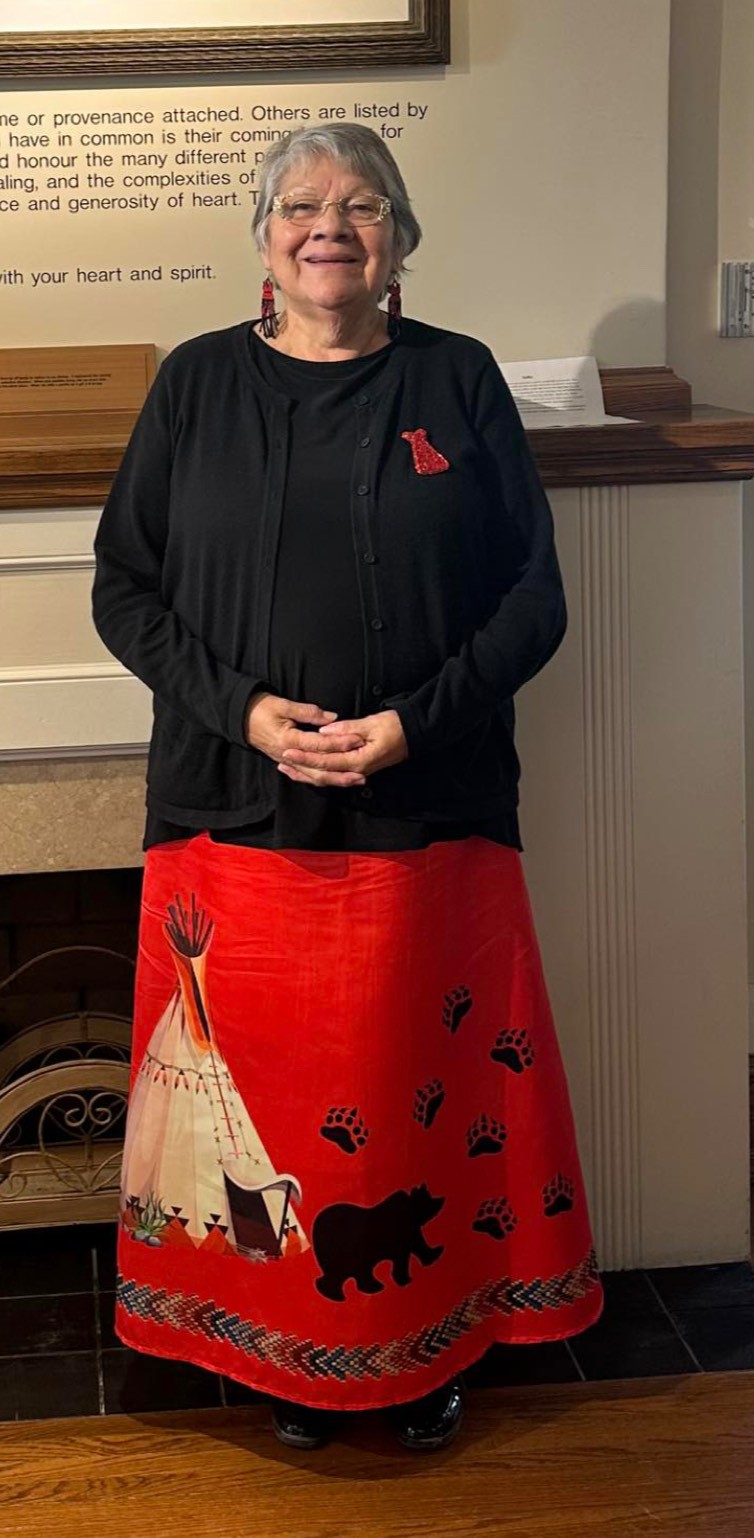Bringing together world-class researchers to share knowledge
and move research
into action.
Please click through the drop-down list associated with each profile to learn more about the amazing collaborators and speakers for our conference!

Elder Belinda Vandenbroeck
From Opaskwayak Cree Nation
Opening and Closing the Conference
Wednesday, October 22nd
Thursday, October 23rd
Elder Belinda Vandenbroeck is from Opaskwayak Cree Nation. She grew up there until she was 9 years old when she was sent to residential school. She was there for 10 years. In 1993, she led the first workshop on the effects of residential schools and colonization in Winnipeg. For 4 years, while working at Wahbung Abinoonjiiag, she helped to facilitate residential school healing gatherings at The Forks from 2001-2004. This has always been her passion, to tell true Indigenous history and to bring back the honourable and Spiritual beliefs of their ancestors — the first peoples of Turtle Island.
Elder Belinda went to university at the age of 45 and received her B. A. in Native Studies and Psychology. She has worked in many organizations and sat on the WRHA board for 5 years and at Addictions Foundation of Manitoba for 2 years. She thought she retired a few years ago, but at the age of 77, she is still working and has been called to many schools around the city to share traditional teachings. She sits as a Knowledge Keeper at Red River College Polytechnic.
Elder Belinda Vandenbroeck will be opening and closing our conference, connecting us all and to our theme of Roots, Breath, & Belonging: The Impacts of Climate Change on Child Health.

Dr. Michael Brauer
From the University of British Columbia
Burning Down the House: Climate Change and Children’s Health
Wednesday, October 22nd
9:00 AM
Michael Brauer is a Professor in the School of Population and Public Health at The University of British Columbia and a Principal Research Scientist and Affiliate Professor at the Institute for Health Metrics and Evaluation at the University of Washington, where he leads the Environmental, Occupational and Dietary Risk Factors team for the Global Burden of Disease. His research focuses on linkages between the built environment and human health, with specific interest in the global health impacts of air pollution, the relationships between multiple exposures mediated by urban form and population health, and health impacts of a changing climate.
The presentation will provide an overview of current understanding of the impacts of a warmer climate on children’s health, with a focus on exposure to wildfire smoke, extreme heat and pollen. Adaptation and exposure reductions approaches will also be summarized.

Dr. Shirley Thompson
From the University of Manitoba
Food, Education, and Housing are the Building Blocks to Maternal and Child Health
Wednesday, October 22nd
10:15 AM
Dr. Thompson is an associate professor in a graduate department with the Faculty of Environment, Earth, and Resources at the University of Manitoba. Dr. Thompson is the principal investigator with the Mino Bimaadiziwin Partnership, researching on Indigenous-led community development and education for housing and food solutions with cohorts from different First Nations, including York Factory First Nation. Dr. Thompson studies environmental justice and health focused on children, First Nation remote communities and women. Her focus is building community-university partnerships that build capacity for Indigenous youth to develop their community through hands-on experiences.
Transforming the housing, food and post-secondary education system, particularly at the Wikiwin Polytechnic Institute in York Landing, is showing health benefits. Healthy housing and food security are critical to maternal and child health. Research with Northern First Nations has documented ill health due to unhealthy housing and poor food security. Research results from programming for First Nation youth to design and build First Nations’ northern homes and different education programs show how transformative post-secondary programs can be for health.

Dr. Kristen Bos
From the University of Toronto
Critical Minerals, Chemical Exposures & Living a Good Life
Wednesday, October 22nd
10:45 AM
Kristen Bos (she/her) is the Co-Director of the Technoscience Research Unit. Kristen is an Indigenous feminist researcher trained in archaeological approaches to material culture as well as an Indigenous science and technology studies (STS) researcher, who is concerned about the relationship between colonial, gendered, and environmental violence. She holds degrees from the University of Oxford and the University of Toronto and is currently an Assistant Professor of Indigenous Science and Technology Studies in the Historical Studies Department with a graduate appointment in Women and Gender Studies Institute at the University of Toronto. She is the author of the upcoming novel, The Interrogation Room (Alchemy by Knopf, 2026) and a citizen of the Métis Manitoba Federation.
This talk will discuss how state and corporate narratives around the critical minerals obscure the toxic legacies of chemical exposure in current and proposed critical mineral extraction zones, gendered exposures to chemical toxins, and how we might organize and live well in spite of it all.

Dr. Jenny Bruin
From Carleton University
Contribution of Environmental Pollutants to Islet Dysfunction
and Diabetes Risk
Wednesday, October 22nd
11:15 AM
Dr. Jenny Bruin is an Associate Professor in the Department of Biology and Institute of Biochemistry at Carleton University. She completed her BSc in Biomedical Toxicology at the University of Guelph and her PhD in Reproductive Toxicology at McMaster University. From 2010 to 2016, Dr. Bruin was a postdoctoral fellow in Tim Kieffer’s lab at UBC, where she studied stem cell-based therapies for patients with diabetes. In 2016, she started her independent position at Carleton University, where her lab studies islet biology, pancreas development, and toxicology. Her team is investigating how environmental factors—including endocrine-disrupting chemicals—impact islet function and contribute to diabetes risk.
A discussion on how exposure to environmental pollutants influences the health of insulin-secreting beta cells and contributes to rising global diabetes rates. The strengths and limitations of different model systems used in Dr. Bruin’s lab will be emphasized, ranging from human studies to rodent models to cell models.

Dr. Anne Hicks
From the University of Alberta
Climate Change, Asthma, and Air Quality Research: A Kid’s-eye View
Wednesday, October 22nd
1:00 PM
Anne Hicks, a Tier 2 Canada Research Chair in Children’s Lung Health, is an associate professor in Pediatric Respiratory Medicine and clinical lead of the Stollery Children’s Environmental Health Clinic, a World Health Organization Collaborating Centre, at the University of Alberta. Her interdisciplinary research includes asthma and environmental health guideline development with the Canadian Thoracic and Paediatric Societies and collaborative work to learn how to prevent or mitigate exposure-related harms to lung health and development.
This patient’s eye review of a research program evolution should enable participants to:
1) Identify air quality concerns associated with climate change;
2) Discuss childhood asthma in the context of climate change; and
3) Consider ways to understand and mitigate climate-driven adverse health outcomes.

Dr. Neeloffer Mookherjee
From the University of Manitoba
Environmental Pollutants and Host Defense: Adaptation of the Lung and Plasma Proteome
Wednesday, October 22nd
1:30 PM
Dr. Neeloffer Mookherjee is a Professor within the Departments of Internal Medicine and Immunology, at the University of Manitoba. Her research group uses Systems-level approaches to identify molecular hubs within inflammatory networks in chronic disease such as asthma and arthritis. Dr. Mookherjee is recognized for her pioneering research on the immunity-related functions of host defence antimicrobial peptides. Dr. Mookherjee was awarded the inaugural CIHR Sex and Gender Science Chair in Respiratory Health, leading research on the influence of biological sex in respiratory disease and response to therapy. Dr. Mookherjee is also Co-lead of AirSAFE, a multidisciplinary facility dedicated to research on the health impacts of air pollution.
This presentation will summarize a series of studies detailing changes in the lung and plasma proteome in response to inhaled environmental pollutants, and the influence of biological sex therein. The impact on host defense mechanisms, in particular immune response to infections, will also be discussed.

Dr. Éric Lavigne
From Health Canada
Prenatal and Early Life Exposures to High Ambient Temperature and Air Pollution on Subsequent Maternal and Child Health Outcomes
Wednesday, October 22nd
2:00 PM
Éric Lavigne is an environmental epidemiologist and a Research Scientist with Health Canada, an Adjunct Professor in the School of Epidemiology and Public Health at the University of Ottawa and an Adjunct Scientist with the Institute for Clinical Evaluative Sciences in Ontario. His research interests include both the adverse and beneficial effects of the environment on human health. His interests lie in the connection between air pollution and climate change, particularly with regard to early life exposure and the health of children.
This session aims to summarize the scientific evidence on the maternal and childhood health effects of exposure to air pollution and high ambient temperature during pregnancy and during the early childhood period. Recent Canadian findings of exposure to extreme heat during the prenatal period on childhood neurodevelopmental outcomes will also be presented.

Dr. Gina Martin
From Athabasca University
Climate Crossroads: The Impact of a Changing Planet on Adolescent Health
Thursday, October 23rd
8:00 AM
Dr. Gina Martin is an Associate Professor in the Faculty of Health Disciplines at Athabasca University and an Adjunct Professor in the Department of Geography and Environment at Western University. Her research focuses on how the physical and social environments where young people live, play, and learn influence their health and wellbeing. She is particularly interested in how climate change affects adolescent health and in identifying the factors that can help mitigate these impacts. Her research bridges geography, substance use, mental health, wellbeing, and climate change, offering a holistic perspective on young people’s health. Her work aims to inform evidence-based strategies that support healthy, resilient futures for young people in the face of climate change.
This talk will explore the growing evidence linking climate change and adolescent health, both nationally and globally. Drawing on research with Canadian young people, it will delve into how adolescents perceive and experience climate change, including the emotions it evokes and the strategies they use to cope. The session will highlight emerging insights and conclude with a forward-looking discussion on how research, public health policy, and planning can better respond to the unique needs of adolescents in the face of climate change.

Dr. Ingrid Jarvis
From the University of British Columbia
Growing Up Green: How Nature Influences Children’s Health
and Development
Thursday, October 23rd
9:20 AM
Ingrid Jarvis is a postdoctoral research fellow in the School of Population and Public Health at the University of British Columbia (UBC) and a Michael Smith Health Research BC trainee. She holds a PhD in Forestry from UBC, where she studied how urban green spaces support human health across the life course. Her current research focuses on how residential green space influences cognitive function in older adults. By examining different green space types and pathways linking nature to health, her work aims to inform urban planning and policy for healthier communities.
This presentation explores how exposure to urban green space, such as parks, gardens, and street trees, supports children’s health and development. It reviews current evidence, outlines potential pathways linking nature to well-being, and highlights findings from research to inform health promotion and urban planning strategies.

Carlyn Allary
From the Canadian Climate Institute
Healthy Energy Homes
Thursday, October 23rd
9:50 AM
Carlyn Allary is a Research Associate, Indigenous Research at the Canadian Climate Institute. She was raised in Treaty 1 Territory (Winnipeg, Manitoba) and is a proud member of the Red River Métis. She currently resides on the unceded territories of the Squamish Nation and the Lil’wat Nation in Whistler, B.C.
Carlyn holds a BSc in Geology from McGill University and is currently completing a MSc in Climate Change Management from the University of Edinburgh. Her past work spans geotechnical engineering, carbon and environmental consulting, international NGOs and Indigenous organizations, with a focus on climate change adaptation, nature-based solutions and advancing environmental work in alignment with Indigenous priorities and values.
The Healthy Energy Homes project, a partnership between Indigenous Clean Energy and the Canadian Climate Institute, aims to address the long-standing challenge that many Indigenous people in Canada live in inadequate housing.
Poor quality homes are causing severe health impacts in Indigenous communities across Canada—investing in Healthy Energy Homes could help address these impacts, make communities more resilient to climate impacts, and help
reduce emissions and health care costs.
This session will be based on the Healthy Energy Homes project being led by Indigenous Clean Energy and the Canadian Climate Institute. It will highlight the connections between housing, health outcomes, clean energy, and
energy efficiency, and show how innovative solutions can leverage synergies between housing, health, and energy, which will also build climate resilience and create economic benefits for communities.

Tyrone Munroe
From Four Arrows Land Based Programming
Panel Presentation: Climate Change — What Can We Do?
Thursday, October 23rd
10:45 AM
Hello, my name is Tyrone Munroe from the Garden Hill Anisininew Nation. I am a regional wellness manager for Four Arrows Regional Health Authority. The FARHA organization works with the 4 communities of the Anisininew Nation. (Wasagamack, St.Theresa Poiint, Red Sucker Lake & Garden Hill).
Evidence-based psycho-educational program builds resilience and safe coping skills in safe group settings. Five developmentally appropriate curricula reach ages 4-17 and adult caregivers. Literacy, cooperative play, arts, and discussion. Informed and designed with local knowledge, cultural and language at the heart of programming.

Sunday Queskekapow
From Kíwétinohk Consulting
Panel Presentation: Climate Change — What Can We Do?
Thursday, October 23rd
10:45 AM
Sunday (Ayamihewi-kisikaw) Queskekapow is a Two-Spirit Swampy Cree First Nations person from Ohpáskowayáhk (The Pas/OCN) and a proud band member of Kinosao Sipi in Treaty 5. Sunday is the co-owner and co-founder of Kíwétinohk Consulting, a fully Indigenous 2SLGBTQIA+ consulting firm that provided consulting and Gladue services.
During the panel Sunday will provide insight from a youth with lived experience in a northern community that is impacted by the toxic waste industry and a member of a hydro affected community. They will highlight the importance of youth led voices for this impact.

